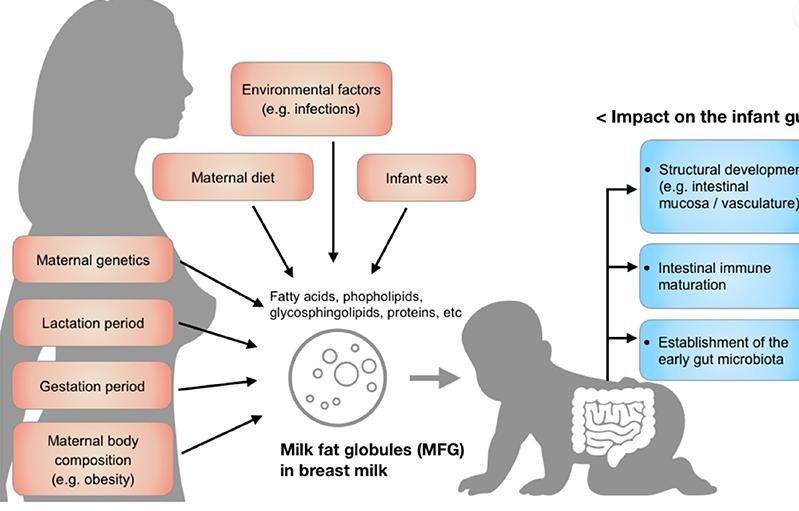Breast milk is not only a source of nutrition for infants, but also a way of protecting them from harmful bacteria. A new study reveals how an immune component of breast milk, called the complement system, shapes the gut environment of infant mice and makes them less susceptible to certain infections.
The complement system is a group of proteins that work together to fight infections. They can either cooperate with antibodies, or act independently, to target and eliminate bacteria. The complement system is present in the blood, but also in breast milk. However, the role of breast milk complement proteins in infant health has been largely unknown.
A team of researchers from the Johns Hopkins Bloomberg School of Public Health, led by Professor Fengyi Wan, decided to investigate this question using mice as a model. They published their findings online on January 18 in the journal Cell.

“These findings reveal a critical role for breast milk complement proteins in shaping offspring’s gut microbe compositions and protecting against bacterial infection in the gut in early life,” says Wan.
The effect of breast milk complement proteins on gut microbiota
The researchers used genetically engineered mice that lacked a key complement gene, called C3, which is essential for most complement functions. They compared the gut microbiota of mouse pups that nursed from normal lactating mice or from C3-deficient lactating mice.
They found that the pups that received breast milk without C3 had different gut microbe populations than the pups that received normal breast milk. In particular, they had more bacteria from the Enterobacteriaceae family, which includes many disease-causing species, such as E. coli and Salmonella.
The researchers also tested how these pups responded to an infection with Citrobacter rodentium, a bacterium that causes diarrhea in mice. They found that the pups that received breast milk without C3 were highly vulnerable to the infection, while the pups that received normal breast milk were resistant.
The researchers showed that the breast milk complement proteins directly killed some of the Enterobacteriaceae bacteria in the gut, thus reducing their numbers and preventing them from causing infection. This effect was independent of antibodies, which are another immune component of breast milk.
The implications for human health
The researchers also confirmed that human breast milk contains complement proteins, which have similar activity against Enterobacteriaceae bacteria in vitro. They suggest that human breast milk complement proteins may also shape the gut microbiota of human infants and protect them from certain infections.
“This represents an important expansion of our understanding of breast milk’s protective mechanisms,” says Wan.
The researchers hope that their findings will inspire further studies on the role of breast milk complement proteins in human health, and potentially lead to new strategies to prevent or treat infections in infants.
